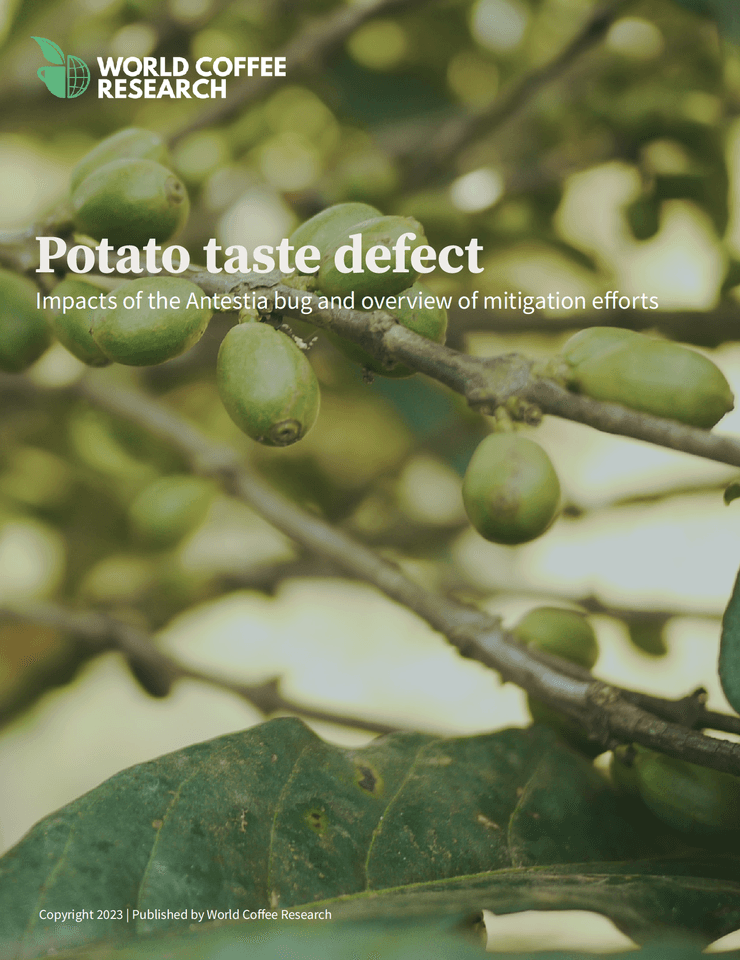
Potato taste defect
Introduction
Potato taste defect (PTD) is a coffee quality defect very often encountered in coffee from the Great Lakes region of Central Africa, mainly Rwanda, Burundi, Congo, Uganda, and less frequently Tanzania and Kenya. As the name suggests, coffee beans with PTD will smell like freshly peeled potatoes when roasted and ground. This quality defect compromises the quality and commercial potential of these coffees when found. There are no health risks posed by this defect, but a single bean exhibiting PTD can ruin an entire bag of coffee (Cain et al., 2021; Church, 2018; Jackels et al., 2014).
While the details of the exact biochemical mechanism behind PTD are still under study, there is no doubt that PTD is associated with damage coming from the Antestia bug (multiple species in the genus Antestiopsis). Therefore, all of the PTD mitigation efforts have been focused on preventing damage from the Antestia bug in the coffee crop, or in the post-harvest phase, where damaged beans are identified and removed. This white paper reviews what is known about the defect and how producers and exporters are dealing with this issue.
Authors
This white paper was developed from the scholarship of experts in coffee agricultural research, reviewed, and adapted by World Coffee Research, with special acknowledgment to the following authors:
- Dr. Laís Teles de Souza, Agronomist, Researcher, University of California, Davis
- Dr. Kraig Kraft, Asia & Africa Director, World Coffee Research
- Christiane Masirika, former DRC Country Agronomist, World Coffee Research